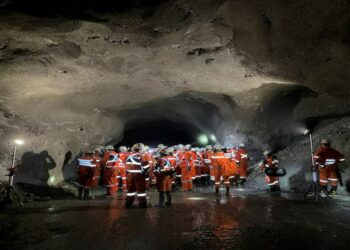A UN report calling for reductions in greenhouse gas emissions is being challenged by Australia due to the continual growth of its coal mining industry.
The UN wants countries to end electricity generation using coal in order to help curb greenhouse gas emissions.
As per the UN report, governments have been successful so far in keeping climate changes in check and at manageable costs. However, to control the risks of irreversible damage to the climate, the target is to bring emissions to zero by 2100.
Coal is a significant fuel for power generation with a global share of 40%.
Reuters reports that according to the government figures, the production of thermal coal is forecast to rise by 8% over the next two years to 270 million tonnes in Australia. This will make Australia the world’s second biggest exporter, after Indonesia.
The Australian Bureau of Resource and Energy Economics predicts that by 2018 / 2019, production will reach 290 million tonnes.
Due to its global spread, abundance and cost-effectiveness, coal is all the more attractive for emerging economies and the increasing demand for electricity adds to the need for the fuel.
Findings by 800 scientists emphasise that, to keep a rise in global temperature below 2°C, fossil fuel power generation in the absence of accompanying carbon capture and storage (CCS) should be done away with by the end of the century.
Representing Queensland Resources Council Michael Roche was quoted by the agency as saying: “CCS represents a path of least resistance in balancing the developing world’s burgeoning energy demand with the emission targets scenario presented by the IPCC.”
With firms like Rio Tinto, BHP Billiton and Glencore interested in digging and operating new coal mines in Australia, the country’s growth is likely to continue.
India’s Adani Enterprises has hired the services of consulting firm Parsons Brinckerhoff to help in its A$7bn ($6.11bn) Carmichael coal mine in Australia. The company expects to start production in three years time.








